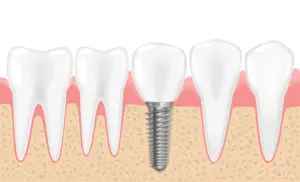06 May Why is bone grafting performed?
 For patients who would like to get dental implants to restore their smiles after tooth loss, deficits in the amount of available bone tissue can stand in the way. In such cases, bone grafting can help these patients access dental implants despite this potential barrier.
For patients who would like to get dental implants to restore their smiles after tooth loss, deficits in the amount of available bone tissue can stand in the way. In such cases, bone grafting can help these patients access dental implants despite this potential barrier.
Bone grafting inserts donor bone tissue at the proposed dental implant site to support osseointegration, the process that provides the framework of successful dental implant placement.
After evaluating your case at your dental implant consultation, your oral surgeon will be able to determine whether bone grafting will be beneficial in your case.
Osseointegration: The Foundation Of Dental Implant Success
Dental implants are so unique because they offer a structurally complete restoration consisting of both an artificial root and crown. This technology works because of a process known as osseointegration, in which bone tissue in the jaw fuses with the implant’s titanium surface.
That osseointegration process renders the dental implant a permanent fixture in the patient’s jaw, allowing it to replicate the absent tooth’s root in both structure and function. However, if there is not enough bone tissue to support osseointegration, dental implants can fail prematurely.
Bone Grafting Can Help Overcome Deficits In The Jaw
A patient may lack sufficient bone tissue at the implant site for any number of reasons, including:
- Advanced bone loss following tooth loss
- Congenital bone deficits
- Facial trauma that resulted in bone loss
If the oral surgeon determines that successful osseointegration is unlikely in the patient’s current circumstances, they may recommend preliminary bone grafting. In that procedure, an oral surgeon would insert donor bone, either from the patient’s body or an external source, at the implant site.
Why Bone Grafting Is A Worthwhile Investment
Most patients will need at least a few months to fully heal from the bone grafting and successfully take in the donor tissue. Therefore, bone grafting does extend a patient’s treatment timeline for dental implant placement. The extra procedure also may involve additional costs.
The rewards you get from this investment of additional time and money are tremendous, however. Bone grafting can help to ensure long-term dental implant success, meaning that you will get numerous advantages from dental implants, as your restorations will be more:
- Stable
- Reliable
- Comfortable
- Convenient
To learn more about whether bone grafting might help you to be able to take advantage of dental implants, schedule an initial evaluation at Commonwealth Oral & Facial Surgery.

